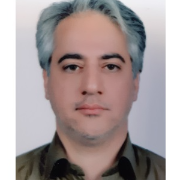Dear Editor,
Regarding paradigm shifts in the education domain, and particularly in medical and health professions education, the focus of the teaching-learning-assessment triangle has increasingly shifted towards personalized curricula (1). This shift requires moving from teacher dominance to learner autonomy. Personalizing the learning process is crucial for fostering learner autonomy. Learning is an experiential process, and the role of the learner is vital; an active learner today can become a genuine facilitator tomorrow. If a learner is passive today, they may become an obstacle rather than a facilitator in the future. Learning is a cooperative effort, not a competition; all learners are players on a football team, with the instructor serving as a coach who can also participate, and the goal is to win together (2).
In the Iranian education system, the lesson plan is commonly used as a behavioral tool to predict the flow of teaching, learning, and assessment. However, this approach may not align with personalizing the teaching-learning-assessment triangle, as each learner's needs and trends are unique. Personal trend analysis and the use of e-portfolios, for example, may be more meaningful approaches (3).
The challenge is even more significant for higher education learners, specifically Ph.D. candidates. These learners, being mature enough to chart their own course, prefer to navigate their path according to their own pace and interests, embodying the true essence of autonomous learning (4).
This letter aims to highlight the challenge of on-the-spot scaffolding compared to traditional lesson planning and proposes designing a hermeneutic phenomenological study to explore the in-depth experiences of Ph.D. candidates, especially those in medical education, across various universities in the country (5). This study could also compare experiences between graduates and current candidates regarding the identified challenges.

